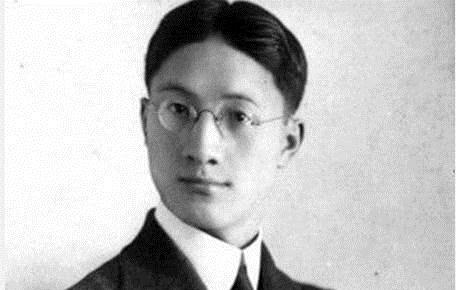From ancient times to the present, most of those who have been involved with the literati and inkers will add the two-word prefix "wind flow", and more recently, Ji Xiaolan during the Qianlong period of the Qing Dynasty has a lot of jokes about him, the most classic of which is still the affair he committed throughout the country. Further back to the Republic of China period, such as Xu Zhimo, a famous poet who wrote "Farewell to Kangqiao", still could not avoid vulgarity, addicted to Lu Xiaoman's beauty and could not extricate himself, and finally divorced his wife and remarried to destroy the two families, and was reprimanded by his teacher Liang Qichao at the wedding.

As for the reason, the author here also guessed it in vain, the ancient saying Zeng Yun: the book has its own Yan Ruyu, and the book has its own golden house. This sentence has a deep impact on future generations of readers, as long as they work hard to study and take the meritorious name, there will be houses, beautiful women, gold and silver in the future. At the same time, it also implies a layer of meaning, the text in the book will not become a beautiful woman, if you want to go to gentle township, you can only rely on literary talent to win and coax to deceive, and gradually more people imitate, this behavior is also known as "wind flow".
Is this condition only found in the male group? The answer is not entirely true, there was such a story in the Republic of China period, the hero named Cheng Yingquan, a Jiangxi native, ancestors in the Qing Dynasty produced several big figures, one once supervised the summer palace, also known as a famous family. Deeply influenced by architectural aesthetics since childhood, he was admitted to the architecture department of Central University, went to the battlefield and taught middle school after graduation, met a senior in the architectural industry under the introduction of friends, and after several conversations, he was very speculative, and this senior gave his daughter Lin Suxu to him. I thought it was a good story, but I didn't want the ending to be a tragedy.
After the victory of the Anti-Japanese War, Tsinghua University returned to Beiping, and Liang Sicheng and Lin Huiyin presided over the work of the Department of Architecture, and Cheng Yingquan was also hired as a professor of the Department of Architecture of Tsinghua University at that time, and Lin Su also followed to be responsible for the work of the secretary. As the days got better and better, Cheng Yingquan also discovered Lin Su's profligacy, and it is reasonable to say that the treatment of Professors at Tsinghua University at that time was extremely rich, but it still could not fill Lin Su's desires, and the marriage between the two began to contradict.
Liang Sicheng and Lin Su
In the mid-1960s, Cheng Yingquan was affected by the social conditions at that time because of his proposal to protect ancient buildings, and was unjustly imprisoned, and fell into the trough of his life. Soon after Lin Su learned of this, he actually became close to Liang Sicheng, who had been widowed for many years, and even filed for divorce with Cheng Yingquan in prison, wanting to remarry Liang Sicheng, and even forbidding his son to visit the prison.
In the late 1960s, Cheng Yingquan was overwhelmed by the mental torture brought to him by this marriage, and chose to commit suicide by throwing himself into the lake, leaving a note before his death that he was "unworthy of love". Lin Su's side was stable for a long time after remarrying Liang Sicheng, but in 2004, she published a book "Liang Sicheng, Lin Huiyin and Me", which relied on subjective speculation to attack and slander Lin Huiyin's past, which caused dissatisfaction among many people and also let her spend her old age in a scolding.